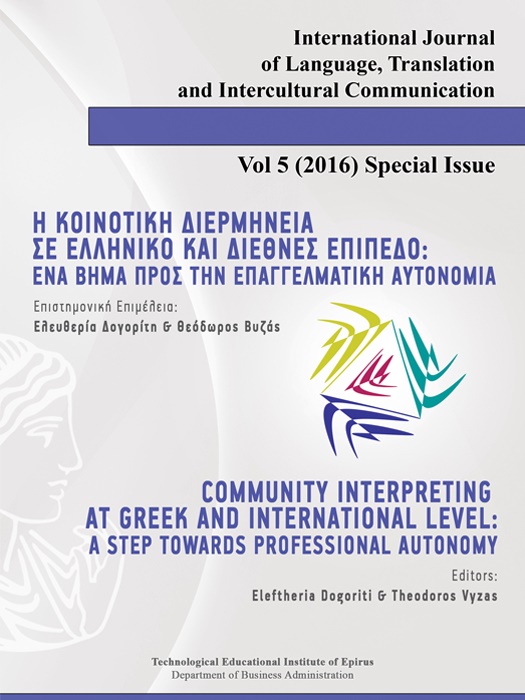Comparing the Court and Medical Interpreters in the USA: the certification process.

Abstract
The scope of the paper is to provide information on the current Court and Medical Interpreting certification process in the USA. It includes information on the administrative aspects of certification for both Courts and Healthcare institutions. In the United States of America, the term Community Interpreting is not commonly used. There are two major types of interpretation: Court and Medical. The first is offered in US State and Federal courts to all LEP clients; the second is offered to the Healthcare Institutions as hospitals, healthcare
centers and clinics to name a few. As the space is limited for this authoring, the paper won’t include data and statistics from different states that showcase and document success and failure rates of the certification examinations. This
may well be the topic of a different paper. This paper does not include information on the Court Interpreting for the Deaf and Hard of Hearing.
Article Details
- How to Cite
-
Zervaki, T. (2016). Comparing the Court and Medical Interpreters in the USA: the certification process. International Journal of Language, Translation and Intercultural Communication, 5, 140–149. https://doi.org/10.12681/ijltic.10662
- Section
- Articles

This work is licensed under a Creative Commons Attribution-NonCommercial-ShareAlike 4.0 International License.
Copyright Notice
Authors who publish with this journal agree to the following terms:
- Authors retain copyright and grant the journal right of first publication with the work simultaneously licensed under a Creative Commons Attribution License that allows others to share the work with an acknowledgement of the work's authorship and initial publication in this journal.
- Authors are able to enter into separate, additional contractual arrangements for the non-exclusive distribution of the journal's published version of the work (e.g., post it to an institutional repository or publish it in a book), with an acknowledgement of its initial publication in this journal.
- Authors are permitted and encouraged to post their work online (e.g., in institutional repositories or on their website) prior to and during the submission process, as it can lead to productive exchanges, as well as earlier and greater citation of published work (See The Effect of Open Access).


